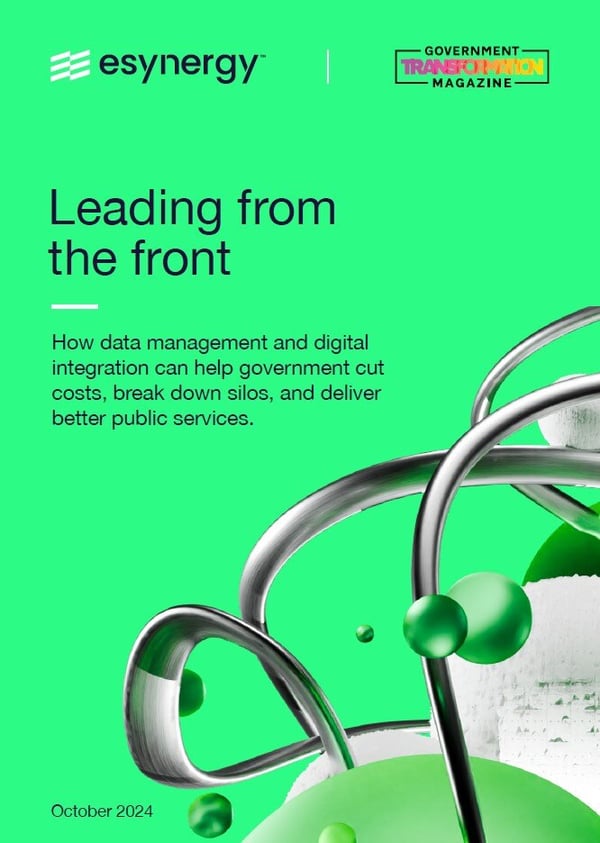Untapped data potential is holding back public services transformation - new research

New research has highlighted the critical — but often unrealised — potential of data to revolutionise public service delivery. Commissioned by esynergy in collaboration with Government Transformation Magazine, the report - Leading from the Front: Using Data and Digital Integration to Cut Costs and Improve Public Services offers a deep dive into how data is shaping government operations, drawing insights from 100 senior leaders in the public sector.
While optimism about data integration is growing, the research suggests a continuing disconnect between ambition and implementation. Despite recognition of data’s transformative power, persistent challenges such as resource constraints, leadership gaps and outdated systems continue to hinder progress.
Unrealised value of data
Data has already demonstrated its ability to drive efficiency and improve decision-making. According to the report, 50% of critical public service decisions are now informed by data insights, but many departments are falling short of fully integrating data into their operations.
Key barriers include insufficient resources for data-sharing initiatives (cited by 74% of respondents) and a lack of standardised frameworks to enable collaboration. Even more concerning, 79% of Civil Servants believe that the perceived or actual burden of data sharing dissuades departments from working together.
Neil McIvor, Head of Data for Public Services at esynergy, identifies the core issues: “Data achieves its greatest impact when seamlessly integrated into operational delivery. Unfortunately, the silos and inefficiencies that persist across government hinder this vision, leaving much of data’s value untapped.”
A leadership void in data strategy
The report paints a picture of leadership misalignment in driving data innovation. Despite the increasing importance of data, only 13% of government departments have a Chief Data Officer (CDO) overseeing data and digital functions at the executive level. Instead, 47% of respondents noted that these responsibilities fall under the Chief Operating Officer, a role typically focused on operations rather than strategic data integration.
This lack of dedicated leadership has ripple effects on emerging technologies like AI. While AI presents significant opportunities for automation and enhanced decision-making, only 14% of respondents said AI policy was managed by a CDO, leaving its potential largely unexplored.
Data sharing: a collaborative imperative
One of the report’s most pressing calls to action is the need for a cultural and structural shift toward data-sharing. Civil Servants expressed frustration with the fragmented nature of data across departments, often citing privacy concerns and a lack of interoperability as major barriers.
Moving forward: a path to integration
While the report highlights significant challenges, it also identifies actionable steps to unlock data’s transformative potential. These include:
- Empowering leadership: Elevating the role of CDOs to the executive level, where they can lead data-driven strategies and foster cross-departmental collaboration.
- Investing in foundations: Building standardised frameworks for data sharing and governance to eliminate duplication and inefficiency.
- Resourcing collaboration: Addressing the resource gaps that prevent departments from effectively sharing and utilising data.
The public sector must shift its focus from simply collecting data to creating systems that enable its full integration.
This vision aligns with growing optimism among Civil Servants, 63% of whom rate their departments’ data integration efforts at seven out of ten or higher. However, the report warns that without strategic leadership and investment, the promise of a fully integrated, data-driven government will remain out of reach.
The findings serve as a critical wake-up call for public sector leaders. As McIvor concludes, “The public sector must shift its focus from simply collecting data to creating systems that enable its full integration and utility. Only then can we realise the promise of digital transformation in delivering more efficient and impactful public services.”
The report is a must-read for anyone looking to understand and shape the future of public service delivery in an increasingly data-driven world.
Download your copy below.






